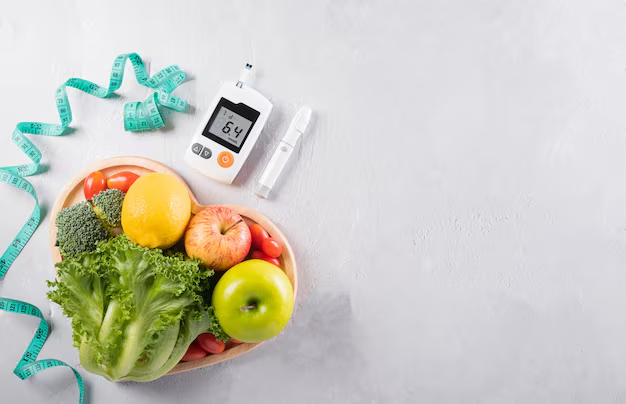Your Guide to What Is a Good Blood Sugar For a Diabetic
What You Get:
Free Guide
Free, helpful information about Diabetes FAQ and related What Is a Good Blood Sugar For a Diabetic topics.
Helpful Information
Get clear and easy-to-understand details about What Is a Good Blood Sugar For a Diabetic topics and resources.
Personalized Offers
Answer a few optional questions to receive offers or information related to Diabetes FAQ. The survey is optional and not required to access your free guide.
Understanding Optimal Blood Sugar Levels for Diabetics
Managing diabetes effectively hinges on maintaining optimal blood sugar levels. For those living with diabetes, keeping track of these numbers is as crucial as breathing. But what exactly constitutes a "good" blood sugar level, and why does it matter so much?
What Are Ideal Blood Sugar Levels?
A "good" blood sugar range for diabetics can vary based on several factors including age, overall health, and individual medical history. However, generally speaking, the American Diabetes Association suggests:
- Before meals: 80-130 mg/dL
- 1-2 hours after meals: Less than 180 mg/dL
Achieving and maintaining these targets can significantly reduce the risk of diabetes-related complications such as heart disease, nerve damage, and vision problems. It's important to note that individual goals might differ, so diabetics should consult their healthcare providers to establish their personal targets.
Why Monitoring Matters
Monitoring blood sugar levels helps in adjusting lifestyle choices, diet, and medication. By adhering to recommended targets, diabetics can protect themselves from potentially severe consequences. Unstable blood sugar levels can lead to extreme fatigue, mood swings, and even life-threatening conditions like diabetic ketoacidosis.
However, checking and controlling blood sugar involves more than just numbers. It’s about being proactive. For instance, understanding how food choices, exercise, stress, and illness affect blood sugar can empower individuals to make informed decisions.
Financial Assistance: Navigating Diabetes Without the Financial Strain
The journey to maintaining a healthy blood sugar level can be expensive, considering the cost of supplies, medication, and regular medical visits. Fortunately, there are financial assistance programs available to help lighten the load for those in need:
- Government Aid Programs: Initiatives like Medicaid and Medicare provide essential coverage for eligible individuals managing diabetes-related expenses.
- Patient Assistance Programs: Many pharmaceutical companies offer patient assistance programs to provide low-cost or free medications to qualifying individuals.
- Nonprofit Organizations: Organizations like the American Diabetes Association may offer advocacy and programs that aid diabetics financially.
Exploring Educational Opportunities
Education can also be a powerful tool in managing diabetes. Programs and workshops offer guidance on diet, exercise, and monitoring techniques which can be invaluable resources for anyone aiming to maintain their health proactively. Online courses and community college programs sometimes offer classes specifically designed to educate individuals on managing chronic conditions like diabetes effectively.
Taking Control with Practical Solutions
While achieving target blood sugar levels is essential, utilizing financial and educational resources can make the path more manageable. These tools not only aid in daily management but also provide a safety net to navigate the financial implications of living with diabetes.
Taking action and reaching out for assistance can lead to more sustainable diabetes management, helping maintain health and alleviate some of the financial burdens associated with the condition.
Financial and Educational Resources for Diabetics
Here's a snapshot of essential resources to aid in the management of diabetes:
- 🏥 Medicaid/Medicare: Government programs offering coverage for necessary medical expenses.
- 💊 Patient Assistance Programs: Free/low-cost medications from pharmaceutical companies.
- ❤️ Nonprofit Support: Resources and advocacy from organizations like the American Diabetes Association.
- 📚 Educational Programs: Workshops or courses focused on diabetes management.
- 📈 Tax Deductions and Credits: Potential tax relief options tied to medical expenses for diabetes care.
- 🤝 Local Diabetes Support Groups: Community-driven support and shared resources.
By tapping into these resources, diabetics can find the support they need to manage their condition effectively and sustainably.
What You Get:
Free Diabetes FAQ Guide
Free, helpful information about What Is a Good Blood Sugar For a Diabetic and related resources.

Helpful Information
Get clear, easy-to-understand details about What Is a Good Blood Sugar For a Diabetic topics.

Optional Personalized Offers
Answer a few optional questions to see offers or information related to Diabetes FAQ. Participation is not required to get your free guide.


